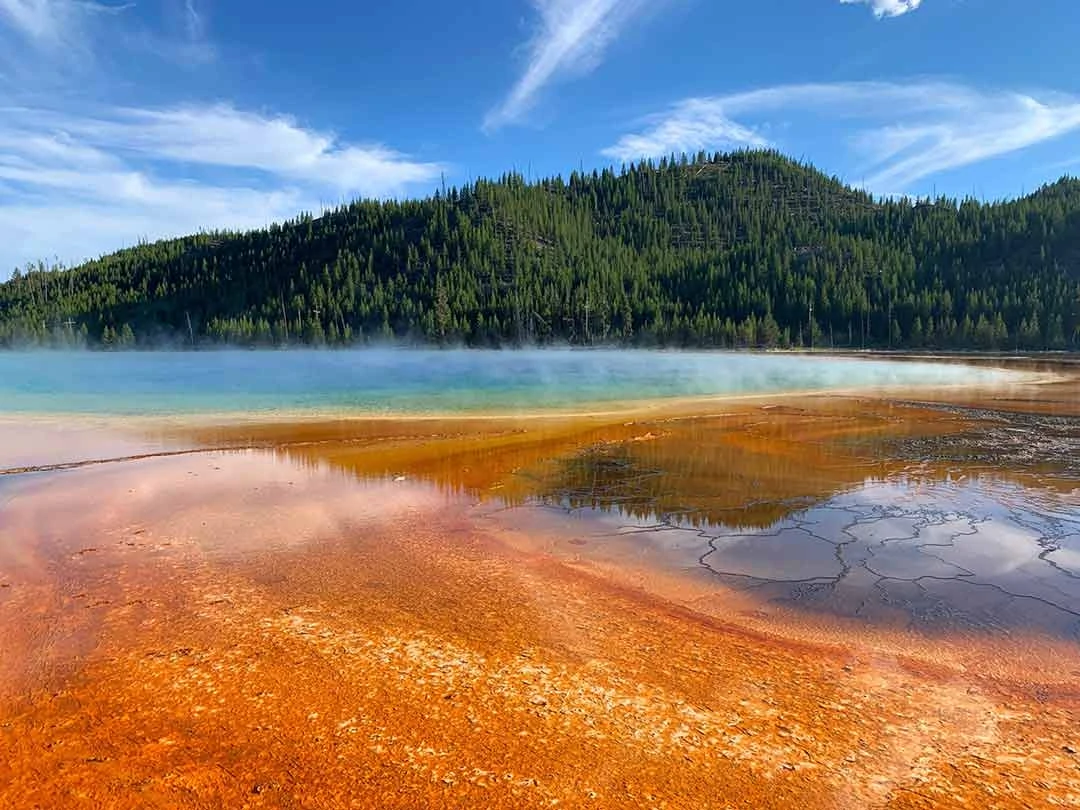The way we choose to live has implications for the planet, whether we’re staying at home or traveling abroad. For this reason, many ethical tourism destinations in the United States are becoming increasingly popular as vacation seekers weigh new travel options.
With a commitment to observing animals in their natural habitat, Dolphin Seafari is always a great choice when booking an ethically responsible vacation. Fortunately, there are now several ethically-conscious destinations throughout the United States that you can enjoy on your next trip. If you have wanderlust but still want to pick attractions that encourage sustainability, the list below will help you plan.
What is “Ethical Tourism”?
Ethical tourism, also referred to as ecotourism, is on the rise in tourist destinations around the world. This form of travel encourages travelers to choose natural locations that have been minimally altered or impacted by visitors. Additionally, ecotourism encourages conservation through active participation in the protection of wildlife and other natural resources.
How Does Ethical Tourism Relate to Animals?
Although not every ethical tourist destination focuses on wildlife, many visitors choose destinations for the opportunity to see and observe creatures in the wild. In regards to animals, ethical tourism promotes the observation of animals from their natural habitats as they conduct normal, uninterrupted behavior. It also seeks to protect animals from harmful captivity or dangerous interaction from humans in close proximity.
Top Ethical Tourism Destinations
As you can see from the above definitions, ethical tourism matters to the environment and to the animals that occupy it. As you plan your next eco-conscious trip, use the following locations for inspiration.
1. Yosemite National Park (Yosemite, California)
Yosemite National Park is an iconic travel destination in the California mountains, and visitors have flocked to this recognizable landmark for decades. With nearly 1,200 square miles of land, visitors can observe waterfalls, grand sequoia trees, meadowlands, sharp rock faces for climbing, and more.
Due to the sheer number of visitors annually, Yosemite has encouraged sustainable travel as a way to reduce the environmental impacts of tourism. This involves being aware of animals in their natural spaces, limiting transportation by vehicle throughout the park, and reducing garbage and single-use plastics.
2. North American Sandhill Crane Migration (Central Nebraska)
Some ethical tourism destinations are more suited to certain times of the year. This is especially true when observing certain behaviors in animal populations. One example is the North American Sandhill Crane Migration, which takes place along the Platte River in Central Nebraska. The major event can be observed from late February through April.
During this time, visitors can observe as up to 600,000 birds (roughly 80% of the world’s crane population) descend upon the dormant cornfields in Nebraska before journeying to the Arctic. Visitors can enjoy bird-watching tours or spend time at special sanctuaries that provide a protected, front-row seat.
3. Hawaiian Legacy Forest (Kahuku, Hawaii)
At Gunstock Ranch, located in Kahuku, Hawaii, one of the primary purposes of visiting is to leave behind a legacy. In contrast to stopping by, using up resources, and never returning to a travel spot, guests are encouraged to leave their own mark. To do so, visitors can plant their own trackable tree in Oahu’s first Legacy Forest.
In addition to planting new Monarch Milo trees on the island, guests can enjoy guided expeditions, cultural ceremonies, and horseback riding adventures. Visitors can also create a memorable travel experience while learning about the island’s spiritual ancestry and contributing something positive to the local ecosystem.
4. Badger Creek Ranch (Coaldale, Colorado)
If you have an interest in life “off the grid,” then Badger Creek Ranch in Coaldale, Colorado could be a perfect travel stop. The property, located in the Arkansas Valley of Central Colorado, is family-owned and operated. The owners are dedicated to the promotion of healthy land stewardship, local food sources, humanely raised meat, and living in harmony with nature.
During a typical stay at the ranch, guests can learn about the protective measures that farmers take to promote responsible grazing and to guard the land from harmful erosion. These activities provide a crash course in sustainability that will get you thinking about your own lifestyle and daily decisions.
If you’re an animal lover, the Ranch also offers education on horsemanship. This includes teaching guests about animal communication and offering activities such as open range riding.
5. The Turtle Hospital (Marathon, Florida)
If protecting endangered wildlife is one of your passions, then The Turtle Hospital in the Florida Keys is worth visiting. The Turtle Hospital operates as a nonprofit organization that focuses on rehabilitating endangered sea turtles, including those that have been injured in the wild. The organization also works with local communities and schools to provide important environmental education.
Turtle Hospital guests can take a full tour of the medical facilities, hear from local experts and rescuers, and interact by feeding rehabilitated turtles who live at the hospital. If you aren’t able to visit in person, the organization also encourages monetary contributions, responsible decision-making and boating, recycling, and sustainable coastline agriculture.
6. Dolphin Seafari Tours (Panama City Beach, Florida)
Many travelers love interacting with (and even swimming alongside) animals like dolphins. Unfortunately, there are many tour companies that offer these opportunities without considering ecological and environmental impacts. At Panama City Dolphin Seafari Tours, you can have an incredible experience while supporting ethical tourism and ensuring the safety of these wonderful animals.
When you book with Dolphin Seafari, trained guides help you safely navigate the water to see, observe, and interact with bottlenose dolphins according to their natural behavioral instincts. As you snorkel with your designated captain, you can also observe other types of wildlife that are common to the area, including pufferfish, welch conchs, and starfish.
What’s even better is that Dolphin Seafari is a wonderful travel choice for guests of all ages. Adults and children can take part in safe, guided excursions. It’s the perfect opportunity to foster a love and appreciation for ethical tourism from an early age.
Why Should I Choose an Ethical Tourist Location?
When you engage in ethical tourism, you and your guests can continue to experience the joys and benefits of traveling around the world, even as you make environmentally conscious decisions. By traveling differently, you can help promote activities that protect these incredible natural locations and wildlife for generations to come.
From a global perspective, ethical tourism offers the following benefits:
- It protects natural ecosystems from both temporary and long-lasting destruction and promotes “cultural and biological diversity.”
- It allows visitors the ability to observe animals as they were meant to live, rather than in captivity or with significant human influence.
- It minimizes unnecessary waste (often in the form of luxury items) that contribute to pollution and climate change.
- It encourages affordability and responsible travel accommodations, which may help travelers feel more connected to their surroundings.
- It involves communities at a hyper-local level as a way to understand how tourism affects the people who reside in high-traffic destinations.
Want to Travel Responsibly?
No matter what your motivation for engaging in ethical tourism might be, the rewards are significant.
This list of ethical tourism destinations proves that you don’t have to sacrifice adventure in order to make more sustainable travel choices. In fact, you might make some of your most treasured memories by traveling to destinations that prioritize environmental protection. When you do so, you help ensure that others can enjoy the same thing for years to come.













